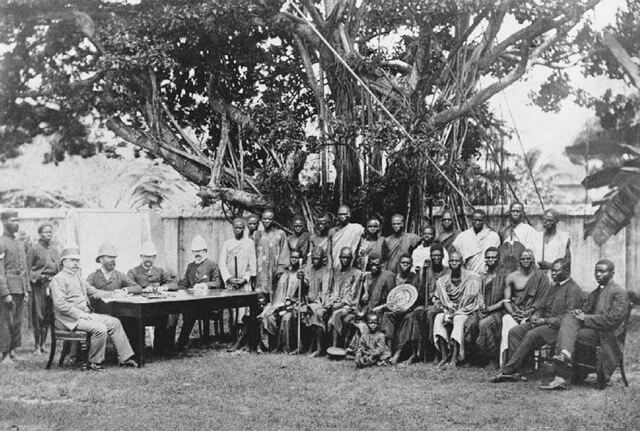
Intelligence Report in colonial Nigeria was a document outlining the history and the administrative culture of the people as constructed from oral traditions and in some cases, other trusted written accounts. The main objective of the Intelligence Report was to show how far the executive and judicial practice is in conformity with the indigenous institutions, whether the people themselves desire any reforms, and whether any changes are recommended. Intelligence reports were not expected to contain except possibly an appendix, any information which is not called for in the southern province circular of 1932. Reports are also compiled as though it were intended for the information of someone who cannot speak the native language of the district being reviewed. Intelligence report, by definition, included a clear map indicating all the places mentioned in each report.
The Blair report, a 1937 document on the native administration of the Egba people, compiled by Major H. Blair, as district officer of Abeokuta contain references from older books such as Samuel Johnson’s History of the Yorubas, Folarin’s Egba History and Ajisafe’s History of Abeokuta. Though pre-existing, none of those documents share with the Abeokuta Intelligence Report in the finality and authority which it carries. The older documents were more subjective, and known to represent certain group interests in their outlook. The Blair report contains no recommendations for reform. In Osogbo, it was stated in a September 1935 letter that the officer assigned to write the town’s intelligence report, Mr. Schofield, will devote his whole time to the work and will not be available for any other duties in the district.
The Aba uprising of 1929 in which women opposed planned taxation on them was attributed by historians to the failure of colonial authority to study the Igbo way of life, as the taxation of women was unnecessary, considering that the woman was a man’s possession in the culture, and inseparable in financial matters. When this was realised, Dr. C.K. Meek of the anthropological department of the northern province was transferred to carry out a study in the east and by the end of 1934, some two hundred intelligence reports have been published.





















